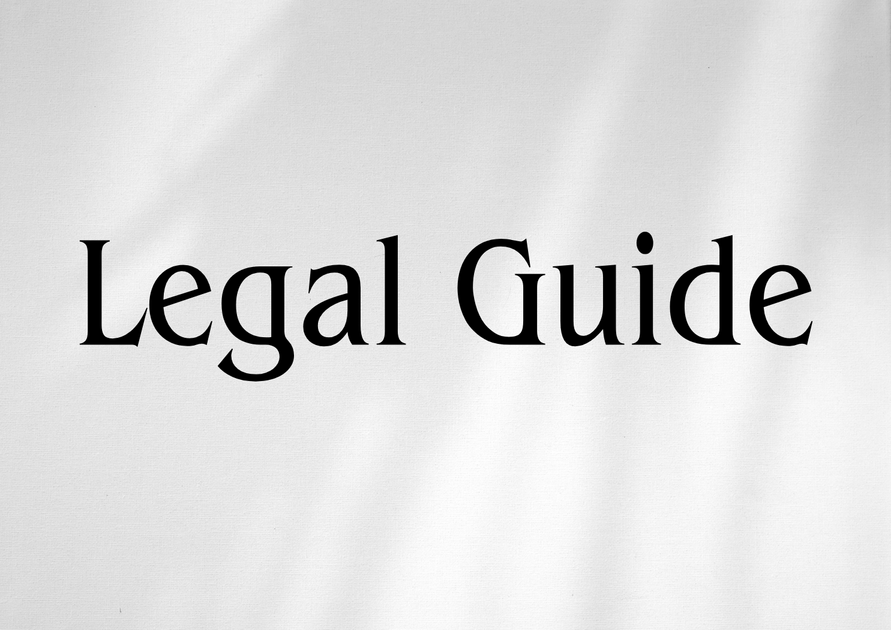Introduction: The Strategic Importance of Aircraft Leasing and Financing in the UAE
The United Arab Emirates stands at the crossroads of global aviation and commerce, with its airports and airlines regarded among the world’s busiest and most advanced. The growth and reputation of the UAE’s aviation sector has been fuelled considerably by innovative aircraft financing and leasing transactions. Recent legal updates—especially those aligned with international best practices and the UAE’s ongoing commitment to attracting foreign investment—make it imperative for businesses, financiers, airlines, and legal practitioners to remain fully conversant with the latest requirements governing aircraft leasing and financing under UAE law.
This comprehensive advisory addresses foundational legislative frameworks, provides detailed analyses of recent Federal Decrees and Cabinet Resolutions (as of 2025), contrasts them with previous regulations, and delivers expert guidance on compliance strategies. The discussion integrates practical insights, hypothetical case scenarios, and clear recommendations to equip readers with actionable legal intelligence tailored to the realities of aircraft transactions in the UAE.
With the UAE’s accession to key international treaties (notably the Cape Town Convention), the introduction of the Federal Decree-Law No. 8 of 2020 (“Commercial Transactions Law”) as amended, and bespoke free zone regulations, the landscape for aircraft financing and leasing is both robust and complex. This article guides UAE and foreign stakeholders through crucial legal developments, compliance obligations, and risk mitigation best practices, ensuring that your aviation-related business is strategically positioned in a fast-evolving environment.
Table of Contents
- Legal Framework Governing Aircraft Leasing and Financing in the UAE
- UAE Law 2025 Updates: Key Legal Changes
- Core Contractual Structures for Aircraft Leasing and Financing
- Registration, Title, and Security Interests: Processes and Protections
- International Treaties and Their Impact in the UAE
- Case Studies and Practical Scenarios
- Common Legal Risks and Proactive Compliance Strategies
- Conclusion and Forward-looking Best Practices
Legal Framework Governing Aircraft Leasing and Financing in the UAE
Main Legislative Sources
The foundational laws and regulations defining aircraft leasing and financing in the UAE are:
- Federal Decree-Law No. 8 of 2020 Concerning Commercial Transactions (“Commercial Transactions Law”).
- Federal Law No. 20 of 1991 concerning the Regulation of Civil Aviation (“Civil Aviation Law”).
- Civil Transactions Law (Federal Law No. 5 of 1985).
- Cape Town Convention on International Interests in Mobile Equipment and Aircraft Protocol (accession effective 1 August 2022).
- Cabinet Resolution No. 52 of 2023 regarding International Registry Utilization.
- UAE Central Bank and SCA Guidelines regarding secured transactions and financial services.
Additional frameworks may apply in free zones such as the Dubai International Financial Centre (DIFC) and Abu Dhabi Global Market (ADGM), each boasting their own aviation and secured transaction regulations.
Regulatory Authorities
- General Civil Aviation Authority (GCAA): Aircraft registration, safety, and operational oversight.
- UAE Ministry of Economy and Ministry of Justice: Notarization, contract enforcement, and dispute resolution.
- Dubai & Abu Dhabi Airports Police & Customs: Operational clearances and regulatory compliance at free zones.
Key Definitions and Regulatory Scope
Aircraft leasing encompasses both operating leases (without transfer of ownership) and finance leases (typically involving eventual asset transfer). Aircraft financing may involve secured lending, asset-backed securities, or sale-and-leaseback arrangements. It is crucial for parties to understand the regulatory and contractual differences, as these directly impact remedies, repossession rights, and the enforceability of interests across jurisdictions.
UAE Law 2025 Updates: Key Legal Changes
1. Federal Decree-Law No. 8 of 2020, Updated by 2023 and 2025 Cabinet Resolutions
Recent amendments to the Commercial Transactions Law clarify the treatment of aircraft as high-value movable assets, streamline the recognition and enforcement of security interests, and specifically reference international conventions applicable in the UAE.
| Aspect | Pre-2022 Provisions | 2023 – 2025 Updates |
|---|---|---|
| Security Interests Recognition | Primarily governed by local law; difficulty with international enforcement. | International interests per Cape Town Convention now fully recognized and enforceable in UAE courts. Digital registration permitted. |
| Registration Process | Manual at GCAA; summary filings; limited online systems. | Online registration aligned with International Registry; mandatory for enforceability (per Cabinet Resolution 52/2023). |
| Repossession and Enforcement Rights | Subject to court approval; risk of delay and local law hurdles. | Summary remedies for repossession recognized; courts obliged to apply Cape Town Convention procedures in most cases. |
| Choice of Law and Jurisdiction | UAE law often mandatory; foreign law clauses treated restrictively. | Increased flexibility for parties to select foreign law, provided parties have substantial ties and transaction documented in compliance with UAE procedural rules. |
2. Cape Town Convention & Aircraft Protocol Implementation
The UAE’s accession to the Cape Town Convention and related Aircraft Protocol provides international financiers and lessors with:
- Priority status for registered interests over subsequently registered or unregistered interests.
- Access to the International Registry for filing, tracking, and searching security interests.
- Remedies that include de-registration, repossession, and interim relief without requiring final UAE court judgments in certain circumstances.
For full enforceability, all relevant interests must be properly registered both with the GCAA and the International Registry, in line with current Cabinet Resolutions and GCAA circulars.
Core Contractual Structures for Aircraft Leasing and Financing
Operating Lease
Under an operating lease, the lessor remains the owner of the aircraft, bearing the residual value risk and often responsibility for regulatory compliance (unless contractually transferred). The lessee uses the aircraft in exchange for periodic payments but gains no automatic right to purchase or transfer title at lease end.
Finance Lease
A finance lease is characterized by a longer tenure and typically includes a purchase option at expiry, or a structure by which lessees assume substantially all risks and rewards of ownership. The finance lease is treated, for legal and accounting purposes, more akin to a security interest in the asset, especially under the Commercial Transactions Law and the Civil Transactions Law.
| Feature | Operating Lease | Finance Lease |
|---|---|---|
| Title Transfer | No, remains with lessor. | Transferred at end, or lessee gets right-to-buy option. |
| Balance Sheet Treatment | Off-balance sheet, unless IFRS 16 applies. | Capitalized as asset/liability under IFRS 16. |
| Registration Requirements | Typically only at GCAA. | Registration at GCAA and possibly International Registry required. |
| Repossession Remedies | Per contract, subject to UAE law; more flexibility. | Relies on full compliance with security interests and registration procedures. |
Sale and Leaseback
This arrangement involves the sale of the aircraft by the operator to a financier or lessor, followed by an immediate lease-back. The structure provides liquidity to airlines and can be tailored for tax optimization, but demands careful attention to registration, transfer taxes, and stamp duties under the Commercial Transactions Law and GCAA regulations.
Registration, Title, and Security Interests: Processes and Protections
Registration Requirements for Aircraft and Interests
1. GCAA Aircraft Registry: All civil aircraft must be registered with the UAE GCAA (per Federal Law No. 20 of 1991). Importantly, registration at the GCAA constitutes prima facie evidence of title but does not guarantee full protection of interests under international law.
2. International Registry (Cape Town Convention): Under Cabinet Resolution 52/2023 and following the UAE’s accession to the Cape Town Convention, registration of international interests on the International Registry is mandatory for full enforceability against third parties and in case of insolvency.
3. Security Filings: Security assignments, mortgage interests, and other encumbrances must be registered with both the GCAA and the International Registry, with strict timelines often imposed under federal law. Failure to register can significantly impact priority and enforceability.
Title Transfer and Perfection of Security Interests
- For finance leases and mortgage-based financings, title and security interests must be perfected both locally and internationally to ensure rights in case of lessee insolvency, default, or asset seizure.
- Under the UAE’s implementation of the Cape Town Convention, priority is determined by order of registration on the International Registry, not by timing of contract execution.
Hypothetical Example
Global Financier A funds Airline B’s new aircraft purchase, registering its interest with the GCAA but failing to file on the International Registry. Airline B later assigns a security interest to Financier C, who completes International Registry registration. In a dispute, Financier C’s claim will prevail, underscoring the criticality of dual registration.
International Treaties and Their Impact in the UAE
Analysis of the Cape Town Convention and Aircraft Protocol
The Cape Town Convention and the Aircraft Protocol provide strong cross-border recognition of security interests, repossession rights, and streamlining of aircraft transactions. The UAE’s full implementation, as confirmed by Cabinet Resolution 52 of 2023, positions the country as a leading aviation finance jurisdiction in the Middle East. Key benefits for lessors and financiers include:
- Direct access to international remedies, including rapid de-registration and export of aircraft in default scenarios.
- Reduced legal risk and enhanced transparency for cross-jurisdictional transactions.
- Clearer priority rules, thereby attracting foreign lenders and reducing the cost of funding for UAE airlines.
Practical Steps for Compliance
All international financiers, lessors, and airlines should ensure:
- Comprehensive due diligence of party capacity and existing registrations.
- Parallel registration at GCAA and International Registry.
- Contract wording aligned with UAE law and referencing Cape Town Convention rights.
- Ongoing monitoring for regulatory updates and procedural changes issued by the GCAA and UAE Ministry of Justice.
Case Studies and Practical Scenarios
Case Study 1: Lessor’s Repossession Right in Case of Lessee Default
Scenario: Airline X defaults on payment obligations under a finance lease. The lessor, having fully registered its interest with both the GCAA and International Registry, triggers the contractual remedy for repossession. The UAE local court, recognizing the summary remedy per Cape Town Convention and relevant Cabinet Resolution, fast-tracks deregistration and export authorization.
Consultant Insight: Summary remedies are available only where interests are duly registered. Incomplete or defective filings can result in the need for protracted litigation under local law, with uncertain outcomes and operational disruptions.
Case Study 2: Non-compliance with New Registration Requirements
Scenario: Corporate Jet Owner M finances an aircraft via a UAE lender, neglecting to file the security interest in the International Registry. Subsequently, a secondary lender funds a working capital facility, securing a new interest properly at both the GCAA and International Registry. In insolvency proceedings, the secondary lender’s registered interest is granted priority under the amended Commercial Transactions Law and the Cape Town Convention as implemented in the UAE.
Visual Suggestion: Compliance Checklist
| Step | Required Action | Reference Regulation/Law |
|---|---|---|
| 1 | Verify party legal capacity and authority | Federal Law No. 5 of 1985, Civil Transactions Law |
| 2 | Prepare and execute bilingual contracts | Federal Decree-Law No. 8 of 2020 (as amended) |
| 3 | Register aircraft with GCAA | Federal Law No. 20 of 1991 |
| 4 | Register all security interests with GCAA and International Registry | Cape Town Convention; Cabinet Resolution 52/2023 |
| 5 | Conduct legal due diligence on prior registrations and encumbrances | Commercial Transactions Law; GCAA Circulars |
| 6 | Review compliance with free zone regulations if applicable | DIFC/ADGM Aviation Rules |
| 7 | Monitor for updates issued by GCAA/Ministry of Justice | UAE Government Portal, Federal Legal Gazette |
Common Legal Risks and Proactive Compliance Strategies
Risks of Non-compliance Under Amended UAE Law 2025
- Loss of Priority: Unregistered security or lease interests may be subordinated to junior or subsequent creditors.
- Exposure to Local Law Litigation: Lack of international registration may require time-consuming court proceedings before repossession or de-registration can occur.
- Insolvency Risks: UAE insolvency courts will recognize only properly registered international interests. Other claims may be treated as unsecured, exposing financiers and lessors to loss of recourse.
- Penalty and Fines: Cabinet Resolutions (notably 52/2023) include administrative fines for failing to comply with registration requirements (up to AED 250,000 per violation).
- Operational Interruptions: Aircraft subject to disputed interests may be withheld from use or de-registered, causing commercial and reputational loss.
Compliance Best Practices
- Early Due Diligence: Rigorously investigate both GCAA and International Registry entries before contracting.
- Integrated Drafting: Draft all contracts to incorporate UAE law compliance clauses, forum selection, and dispute resolution mechanisms referencing international treaty obligations.
- Dual Registration: Always register with both the GCAA and International Registry for absolute legal protection.
- Continuous Monitoring: Assign responsibility within your organization to track updates from the GCAA, Federal Legal Gazette, and Ministry of Justice.
- Education and Training: Ensure all team members—including commercial, legal, and operational staff—are trained on new compliance protocols and reporting.
Visual Suggestion: Penalty Comparison Table
| Breach Type | Pre-2022 Penalties | 2023–2025 Updated Penalties |
|---|---|---|
| Failure to register international interest | Limited recognition; case-by-case judicial decisions | AED 100,000–250,000 per violation; interest may be rendered unenforceable |
| Unregistered change in operator | Minor administrative penalties | Operational suspension; AED 50,000–100,000 |
| Use of non-compliant contract forms | Risk of unenforceability | Contract declared void; loss of legal remedies |
Conclusion and Forward-looking Best Practices
The UAE’s aircraft leasing and financing landscape has been transformed by robust statutory reforms, advanced international treaty adoption, and regulatory modernization. These measures not only enhance the nation’s global aviation reputation, but create significant new compliance dynamics for airlines, lessors, and financiers. In the context of UAE Law 2025 updates, only those entities who stay ahead of evolving requirements—by dual-registering interests, integrating international remedies into contracts, and maintaining precise operational documentation—can fully mitigate risk and seize new commercial opportunities.
We recommend proactive engagement with experienced UAE legal counsel, ongoing compliance audits, and dedicated training for relevant teams to ensure continued adherence to a compliance-centric culture. By adopting these strategies, organizations can ensure long-term success, protect valued assets, and contribute to an aviation sector that remains both innovative and resilient on the world stage.
For up-to-date legal guidance or support with aircraft transactions in the UAE, please contact our expert legal consultants. Our team stands ready to provide bespoke support tailored to your organizational needs, leveraging deep expertise in the UAE’s continually evolving legislative and regulatory environment.




